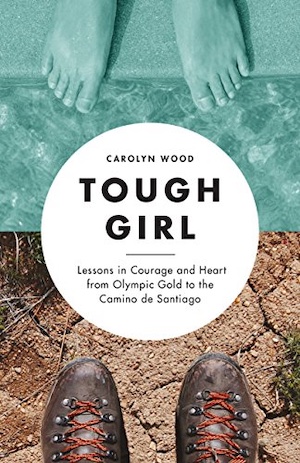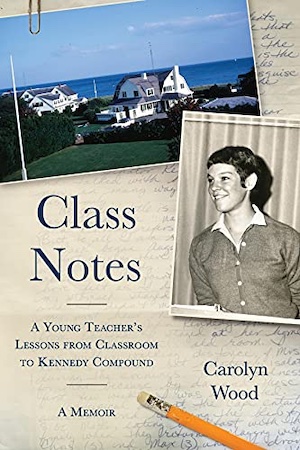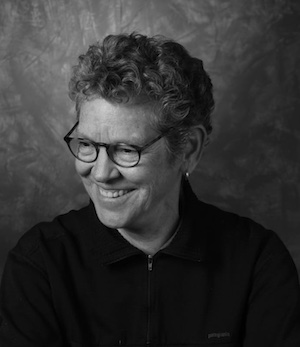By Monica Sager
Carolyn Wood (ΦBK, University of Oregon) may be known as the former American Olympic swimmer or even for the records she held. But to Wood, what gives her life meaning has been her teaching.
“I was thinking that I want to do something for my country more than just being in the Olympics,” Wood said. “I felt like I did that simply by being a really good high school English teacher.”
In 1960, Wood finished first in the 100-meter butterfly event in the U.S. Olympic Trials. She was favored to win the gold medal at the Summer Olympics that year in Rome. However, she accidentally swallowed water during the turn and did not finish the race. Individually, she finished fourth in the 100-meter freestyle with a time of 1:03.4.
Wood did win a gold medal as a member of the winning U.S. women’s 4×100-meter freestyle relay, with teammates Joan Spillane, Shirley Stobs, and Chris von Saltza. Wood swam the third leg, and the relay team set a world record of 4:08.9, which was nine seconds faster than the previous record. At age 14, Wood was the youngest member of the 1960 U.S. Olympic team to win a medal. Wood also swam for the gold medal-winning U.S. team in the 4×100-meter medley relay, but under the 1960 international swimming rules, she did not receive a medal due to not swimming in the event final.
“Leaving this country opened the world for me in a way that it didn’t for my peers,” Wood said.
Following the Olympics, Wood attended the University of Oregon and became an English teacher. She taught at both Beaverton High School and Wilson School in Portland. It was in the classroom that Wood said she was able to fully utilize her liberal arts education.
“I appreciate the broad education that I got,” Wood said. “I feel like that’s missing for a lot of people today. It wasn’t job training. It was more learning about the world and thinking.”
She said the reading she did throughout school was what “moved” her to “want to provide that same opportunity.” Wood also added that the liberal arts education she received allowed her to understand different perspectives and people more overall.
“I had really good English teachers. I wanted to have that kind of influence on others,” Wood said. “It seems to me that we forget that all of the young people in the world today will be our caretakers . . . . Those of us that spend those first 12 years teaching them to read and think and cooperate and follow rules and take care of one another . . . we’re critical to keeping our humanity.”

Tough Girl: Lessons in Courage and Heart from Olympic Gold to the Camino de Santiago (Sasquatch Books, 2018), her autobiography, was Wood’s first book. Her coming-of-age story covers the road to her Olympic dreams in Rome, growing up in the conventional 1950s and 60s as Wood denied her sexuality, a child custody hearing in 1976, and then her adjustment and fulfillment in life living as her true self.
Wood has now released her second book, Class Notes: A Young Teacher’s Lessons from Classroom to Kennedy Compound (White Pine Press, 2021), which dives more into what pushed her to pursue teaching as a career and the experiences leading up to it.

In May 1968, during her first year of work as an English teacher, Wood took a day off to campaign for Robert F. Kennedy in the Oregon presidential primary, as explained on her website: “Three months later, she arrived at the Kennedy Compound in Hyannis Port to begin an extraordinary year as the Kennedy children’s governess.” Class Notes recounts her journey and memories of the Kennedy family following the senator’s death.
“When I wrote the prologue, I talked about my students always wanting to know what it was like to go to the Olympics and what it was like to live with the Kennedys. My answer was always, ‘I’ll tell those stories when I retire,’” Wood said. “These two epic events happened in my life before I was 23 years old.”
In Class Notes, Wood explores these experiences and explains why she came back to teaching. The book is chronological, Wood said, covering her first year as a teacher, her year with the Kennedys, and then her return to the classroom. She looks into the change that occurs in that time.
“I think teaching is the most noble profession,” Wood said. “Literature just broadens the world.”
Monica Sager is a graduate student at Clark University studying communications. She was inducted into Phi Beta Kappa as an undergraduate there. She completed her Bachelor’s in psychology and student-designed journalism, with a minor in English, in June 2021. Clark University is home to the Lambda of Massachusetts chapter of Phi Beta Kappa.




